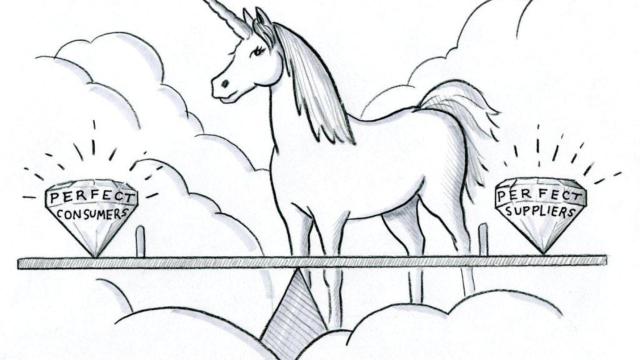We’re in an Era of Prosperity. So Why is Our Leisure Time Disappearing?

Ironically, we are witnessing the disappearance of leisure. We live in the most prosperous era of human history, and prosperity supposedly brings leisure, free time to enjoy our abundance. The steady onslaught of technological advances boosting productivity suggests that by now, we should be knocking off at lunchtime to enjoy hobbies or family life, and taking at least a couple months of vacation per year. No less than John Maynard Keynes predicted such a scenario in his 1928 essay, “Economic Possibilities for Our Grandchildren.” Though Keynes proved prescient on the expansion of the world economy, regarding free time, he could hardly have been more wrong.
Instead of cashing in on a leisure dividend, Americans relentlessly consume more goods and services and raise their standard of living higher and higher. They continue to work long hours and long weeks, struggling to keep pace with their credit-card balances. Free time, if anything, seems scarcer than ever.
Furthermore, another cramp on our free time has entered the scene. In addition to all the jobs we do for pay, a species of unpaid work has crept into our lives. Shadowwork embraces all the unpaid jobs we do on behalf of businesses and organizations. My bookShadowWork: The Unpaid, Unseen Jobs That Fill Your Day offers a kind of field guide to this new phenomenon. We rarely recognize the shadowwork we are doing, even as we pump our own gasoline, scan and bag our own groceries, compose our own salads at the salad bar, or book our own travel on Orbitz. Yet every year, it is converting more leisure moments into occasions for unpaid work.
Though many shadow tasks are small ones, they nibble away at our uncommitted time like a school of hungry minnows. Shadowwork constantly tacks new jobs onto our to-do lists. We accept this trend largely because we have not noticedshadow work entering our routines. In addition, we’re inclined to accept it because shadowwork is consistent with our culture’s across-the-board reverence for work.
The United States, for example, is the only advanced industrial nation without a law setting a minimum amount of vacation time for employees. And a study by Oxford Economics indicated that from 2000 to 2013, the average American worker’s annual vacation days decreased from 20.9 to 16. In The Big Squeeze, his 2008 book on the American labor force, Steven Greenhouse wrote that Americans were working “three full-time weeks per year more than the average British worker, six more weeks than the average French worker, and nine more weeks than the average German worker.” He added that 36 percent of Americans didn’t use all the vacation they had earned.
Shadowwork, then, is the kind of syndrome psychologists call “ego-syntonic” — it’s consistent with our predilections. Even so, if we can momentarily dislodge ourselves from our submersion in work, perhaps we can examine the trade-offs we’re making around work and time, and start to unravel the mystery of our vanishing leisure.
Consider the cases in which consumers voluntarily chooseshadowwork, even when there is no financial advantage. For example, many prefer to pump their own gasoline, as it gets them out of the gas station faster and thus “saves time.” Americans are very keen on saving time and money, as if we all aspire to become fast-moving tightwads. But “saving time” is a purely quantitative description: It avoids the question of what we are doing with that time, and how the time feels.
To many, saving time may mean saving money. The American ethos has long equated the two. More than two centuries ago, Benjamin Franklin declared that “time is money,” and many seem to view the two things as interchangeable, one convertible into the other. In particular, we see time as something we can turn into money, whether by earning an hourly wage or inventing a new widget.
Yet we never seem to do the reverse: Convert money into time — for example, by taking all of those earned vacation days. Nor do we understand that time and money are not measured on the same scale. Money is a means of exchange — a measurable, finite, and universally acknowledged medium. A $5 bill counts the same in California as in New Jersey, or, for that matter, in Paris, with minor adjustments.
But time — the kind of time we live — is, in contrast, both a personal experience and infinite in value. Certainly, we can measure it in hours or days, and even set prices on certain segments of it, but those finite amounts are not time as experienced. Clock or calendar time is something marked off on an external, objective yardstick. In contrast, the time we inhabit, moment to moment, is ultimately an inner experience.
Therefore, consider how you value your time when you next confront an opportunity for shadowwork. Making your own salad at the salad bar might give you more control over those greens. On the other hand, letting the kitchen make the salad allows you to spend a few more moments at the table enjoying the company of your family and friends. The trade-off might be worth it. Paying attention to the quality of your time can enable you to recapture some of that lost leisure, giving back ownership of the most precious thing you possess. Doing so will let you have the time of your life.
© 2015 Craig Lambert, Ph.D., author of ShadowWork: The Unpaid, Unseen Jobs That Fill Your Day
©Image ©iStock.com





